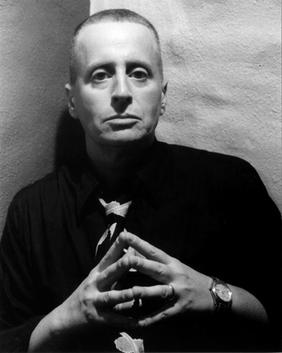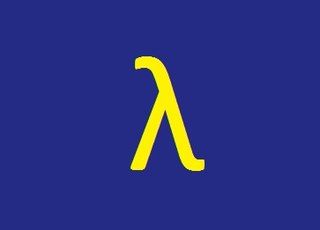The Lesbian Avengers were founded in 1992 in New York City, the direct action group was formed with the intent to create an organization that focuses on lesbian issues and visibility through humorous and untraditional activism. The group was founded by six individuals: Ana Maria Simo, Anne Maguire, Anne-Christine D'Adesky, Marie Honan, Maxine Wolfe, and Sarah Schulman.

Urvashi Vaid was an Indian-born American LGBT rights activist, lawyer, and writer. An expert in gender and sexuality law, she was a consultant in attaining specific goals of social justice. She held a series of roles at the National LGBTQ Task Force, serving as executive director from 1989-1992 — the first woman of color to lead a national gay-and-lesbian organization. She is the author of Virtual Equality: The Mainstreaming of Gay and Lesbian Liberation (1995) and Irresistible Revolution: Confronting Race, Class and the Assumptions of LGBT Politics (2012).

Leslie Feinberg was an American butch lesbian, transgender activist, communist, and author. Feinberg authored Stone Butch Blues in 1993. Her writing, notably Stone Butch Blues and her pioneering non-fiction book Transgender Warriors (1996), laid the groundwork for much of the terminology and awareness around gender studies and was instrumental in bringing these issues to a more mainstream audience.

The Gay Activists Alliance (GAA) was founded in New York City on December 21, 1969, almost six months after the Stonewall riots, by dissident members of the Gay Liberation Front (GLF). In contrast to the Liberation Front, the Activists Alliance solely and specifically served to gay and lesbian rights, declared themself politically neutral and wanted to work within the political system.

Gay Liberation Front (GLF) was the name of several gay liberation groups, the first of which was formed in New York City in 1969, immediately after the Stonewall riots. Similar organizations also formed in the UK, Australia and Canada. The GLF provided a voice for the newly-out and newly radicalized gay community, and a meeting place for a number of activists who would go on to form other groups, such as the Gay Activists Alliance, Gay Youth New York, and Street Transvestite Action Revolutionaries (STAR) in the US. In the UK and Canada, activists also developed a platform for gay liberation and demonstrated for gay rights. Activists from both the US and UK groups would later go on to found or be active in groups including ACT UP, the Lesbian Avengers, Queer Nation, Sisters of Perpetual Indulgence, and Stonewall.

A dyke march is a lesbian visibility and protest march, much like the original Gay Pride parades and gay rights demonstrations. The main purpose of a dyke march is the encouragement of activism within the lesbian and sapphic community. Dyke marches commonly take place the Friday or Saturday before LGBTQ pride parades. Larger metropolitan areas usually have several Pride-related happenings both before and after the march to further community building; with social outreach to specific segments such as older women, women of color, and lesbian parenting groups.

This article addresses the history of lesbianism in the United States. Unless otherwise noted, the members of same-sex female couples discussed here are not known to be lesbian, but they are mentioned as part of discussing the practice of lesbianism—that is, same-sex female sexual and romantic behavior.

Ann Northrop is a journalist and activist, and the current co-host of TV news program Gay USA.

LGBTQ movements in the United States comprise an interwoven history of lesbian, gay, bisexual, transgender and queer social movements in the United States of America, beginning in the early 20th century. A commonly stated goal among these movements is social equality for LGBTQ people. Some have also focused on building LGBTQ communities or worked towards liberation for the broader society from biphobia, homophobia, and transphobia. LGBTQ movements organized today are made up of a wide range of political activism and cultural activity, including lobbying, street marches, social groups, media, art, and research. Sociologist Mary Bernstein writes:
For the lesbian and gay movement, then, cultural goals include challenging dominant constructions of masculinity and femininity, homophobia, and the primacy of the gendered heterosexual nuclear family (heteronormativity). Political goals include changing laws and policies in order to gain new rights, benefits, and protections from harm.
Ana María Simo is a New York playwright, essayist and novelist. Born in Cuba, educated in France, and writing in English, she has collaborated with such experimental artists as composer Zeena Parkins, choreographer Stephanie Skura and filmmakers Ela Troyano and Abigail Child.

Azalea: A Magazine by Third World Lesbians was a quarterly periodical for Black, Asian, Latina, and Native American lesbians published between 1977 and 1983 by the Salsa Soul Sisters, Third World Wimmin Inc Collective. The Collective also published the Salsa Soul Sisters/Third World Women's Gay-zette.

The first English-language use of the word "bisexual" to refer to sexual orientation occurred in 1892.
Racism is a concern for many in the Western lesbian, gay, bisexual and transgender (LGBTQ) communities, with members of racial, ethnic, and national minorities reporting having faced discrimination from other LGBT people.

The development of LGBT culture in Philadelphia can be traced back to the early 20th century. It exists in current times as a dynamic, diverse, and philanthropically active culture with establishments and events held to promote LGBT culture and rights in Philadelphia and beyond.

New York City has been described as the gay capital of the world and the central node of the LGBTQ+ sociopolitical ecosystem, and is home to one of the world's largest and most prominent LGBTQ+ populations. Brian Silverman, the author of Frommer's New York City from $90 a Day, wrote the city has "one of the world's largest, loudest, and most powerful LGBT communities", and "Gay and lesbian culture is as much a part of New York's basic identity as yellow cabs, high-rise buildings, and Broadway theatre". LGBT travel guide Queer in the World states, "The fabulosity of Gay New York is unrivaled on Earth, and queer culture seeps into every corner of its five boroughs". LGBTQ advocate and entertainer Madonna stated metaphorically, "Anyways, not only is New York City the best place in the world because of the queer people here. Let me tell you something, if you can make it here, then you must be queer."
This is a timeline of LGBT Jewish history, which consists of events at the intersection of Judaism and queer people.

Maxine Wolfe is an American author, scholar, and activist for AIDS, Civil Rights, lesbian rights, and reproductive rights. Wolfe is a co-founder of the Lesbian Avengers, a coordinator at the Lesbian Herstory Archives, and a member of Queer Nation. Wolfe is currently a Professor Emerita of Women's and Gender Studies at the Graduate Center, CUNY.
Cathy Cade, is an American photographer noted for her work in documentary photography, including photos about lesbian mothering. She has been a feminist and lesbian activist since the early 1970s, starting as an activist and inspired by the power of photography in the early 1960s as part of the Southern Civil Rights Movement.
Elly Bulkin is an American writer. A founding editor of two nationally distributed periodicals: Conditions and Bridges: A Journal for Jewish Feminists and Our Friends.Bridges mission statement explains that the journal sought to integrate “analysis of class and race into Jewish-feminist thought" and to be "a specifically Jewish participant in the multi-ethnic feminist movement.”
The National LGBTQ Wall of Honor is a memorial wall in the Greenwich Village neighborhood of Manhattan in New York City, dedicated to LGBTQ "pioneers, trailblazers, and heroes". Located inside the Stonewall Inn, the wall is part of the Stonewall National Monument, the first U.S. National Monument dedicated to the country's LGBTQ rights and history. The first fifty inductees were unveiled June 27, 2019, as a part of events marking the 50th anniversary of Stonewall. Five honorees are added annually.











